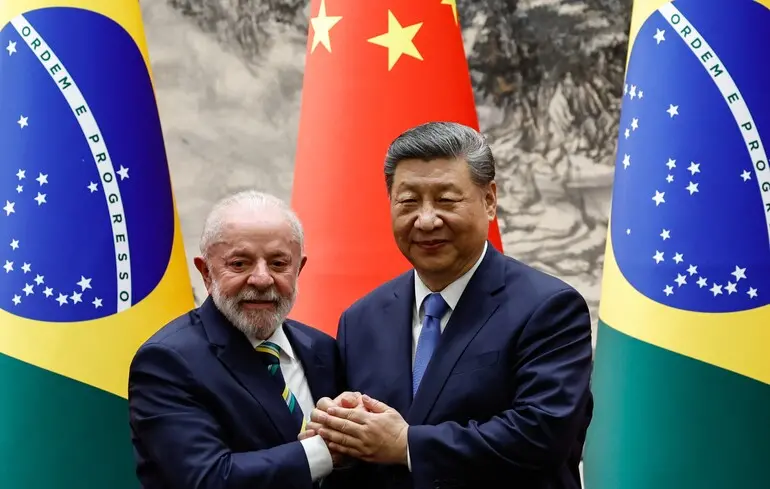Global Impacts of Tariff Pressures: Brazilian President Lula da Silva and Xi Jinping Discuss International Strategy Amid Trade Conflicts

Amid escalating trade restrictions and tariff pressures from the United States, Brazilian President Luiz Inácio Lula da Silva has taken proactive diplomatic steps to assert Brazil’s position on the international stage.
In response to economic challenges intensified by former U.S.
President Donald Trump’s policies, which complicated Latin America’s trade relations, Lula engaged in an important telephone conversation with Chinese leader Xi Jinping.
The meeting, lasting about an hour, marked a significant step in strengthening cooperation and balancing geopolitical influence between Brazil and China.
According to government sources, key topics included the ongoing conflict in Ukraine, the role of multilateral organizations such as G20 and BRICS, and strategic partnership development.
Xi Jinping emphasized China’s commitment to promoting multilateralism, opposing unilateral actions and protectionism—traditionally used by the U.S.
to justify its trade policies.
Additionally, Xi expressed support for Brazil’s efforts to defend its legitimate rights and highlighted the historic depth of their bilateral relations.
Beijing reiterated its readiness to deepen cooperation with Brasília to showcase an example of unity and self-sufficiency among Global South nations, advocating for solidarity and equilibrium in the current world order.
These diplomatic activities are part of Lula’s broader agenda to foster solidarity within the BRICS club, which unites major developing countries, including Russia and India, with whom Lula recently held separate negotiations amidst external pressures.
The talks with Russia’s Vladimir Putin and India’s Narendra Modi took place during a period when Brazil faced increasing U.S.
sanctions and tariffs, particularly following renewed trade disputes.
The recent conversation between Lula and Xi Jinping was also noteworthy in the context of the U.S.-China trade war, where President Trump extended the moratorium on tariffs for another 90 days, though this pause did not fully mitigate the economic impact.
BRICS countries, having suffered from increased American tariffs, are seeking alternative pathways to economic resilience.
Established in 2009, the BRICS group has expanded over the years, now including Iran, the United Arab Emirates, Ethiopia, and Egypt, signaling a movement toward greater independence from Western economic dominance.
Meanwhile, the U.S.
is recalibrating its technological policies, with American companies like Nvidia and AMD now required to pay royalties on their sales to China, reflecting a new phase of global tech rivalry.
Despite persistent tensions, the collective efforts of BRICS members aim to strengthen their global positions through diplomatic engagement and multilateral cooperation, as they seek to maintain strategic independence in a shifting international landscape.

